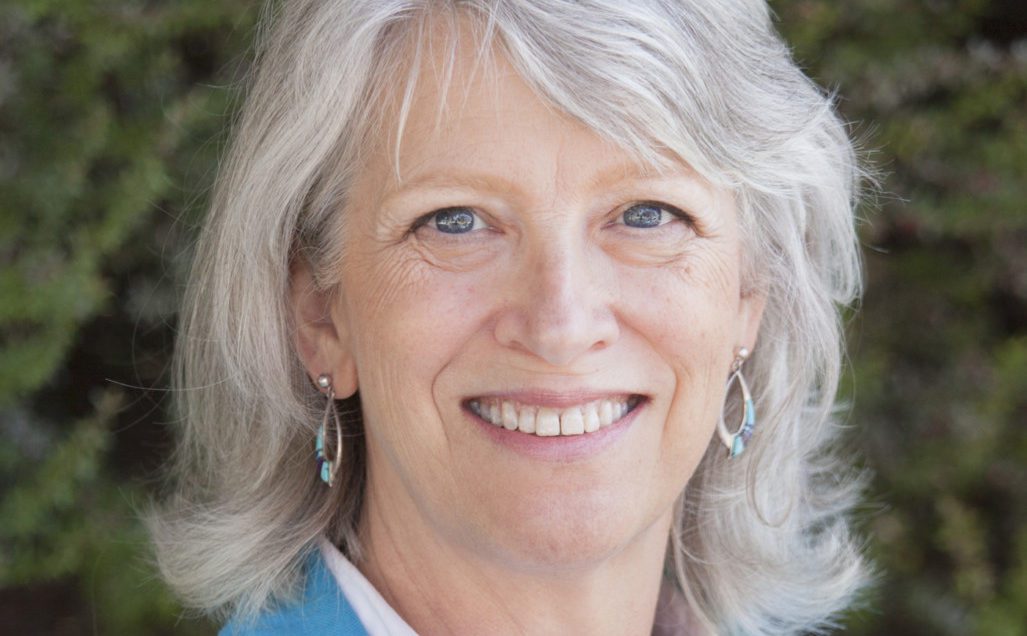CLEMSON – In a set of curriculum standards for a K-12 science classroom, teachers will find details about concepts to be taught and performance indicators to aim for. But they won’t find a breakdown describing how to navigate their students’ personal beliefs regarding contentious scientific topics such as climate change, evolution, or genetically modified organisms.

Ann Reid, Executive Director of the National Center for Science Education (NCSE), is working to address this issue. She will be discussing NCSE’s mission to promote scientific literacy during her Oct. 10 lecture at Clemson University titled “Capturing a Killer, Capturing the Imagination: The Power of Bringing Real Evidence into the Science Classroom.”
Clemson faculty, students and area public educators are encouraged to attend this free event, which will be held from 7-8:15 p.m. in the Watt Family Innovation Center auditorium.
Reid is the third speaker in the fall lineup of the TIGERS ADVANCE Distinguished Speaker Series, created to promote diversity among STEM scientists and provide external networking opportunities for early career faculty at Clemson University.
With an undergraduate degree in environmental studies and a graduate degree in public policy, Reid began her career working in European policy.
“After a few years being in public policy, I realized it wasn’t for me. I then got a job as a technician with a molecular biologist and became totally hooked. Most of my years as a scientist were spent sequencing the virus that caused the 1918 influenza pandemic,” Reid said.
The 1918 flu project began when the government started questioning whether it was necessary for the Department of Defense to maintain a repository of tissue samples collected over the course of almost 100 years. After seven years of study, and a fully sequenced flu virus that led to better antiviral drugs and vaccines, the answer was evident that a pathology repository might have some benefits.
“It was such a privilege to work on that project. It was a situation where finding the answer had concrete and obvious public health significance,” Reid said. “We didn’t know how it was going to turn out. We didn’t know what the answers were going to be. We didn’t know if we were going to be successful at it, but that’s the real heart of what it means to be a scientist.”
After 15 years at the Armed Forces Institute of Pathology, Reid left her position as a research biologist to become a senior program officer for the National Research Council’s Board on Life Sciences, a division of the National Academy of Sciences.
In this role, Reid was in charge of recruiting scientists to take part in an advisory committee that used science to inform governmental policy decisions.
“It was a really transactional role where I was helping the science community develop useful, evidence-based advice for decision makers,” Reid said.
She transitioned to a position as the director of the American Academy of Microbiology before joining her current appointment at NCSE.
Reid admits she knew very little about K-12 science education when she became the executive director at NCSE, but she was confident in her passions for science and the importance of understanding how science works. She approached the role with two motivations in mind: how to most effectively educate the next generation using evidence-based research, and how to best inspire students to answer their questions about the world.
“I came in as a scientist with a passion for students to not be misled in their classrooms about how science works,” Reid said. “Science is not a debate. It’s not a choice whether you believe something or you don’t believe something. You have to accept where the evidence leads you. That’s how science works and that’s what makes it so powerful. I am completely aware that as we make societal decisions, applying scientific thinking and examining evidence is only part of the equation – our values and priorities matter too. But we will never make our best decisions without looking at the evidence.”
In Reid’s Oct. 10 talk, she will discuss how science teachers can navigate the risk of conflict in the classroom surrounding contentious topics in science.
“The only way we can really address students’ misconceptions about topics like evolution and climate change is by letting them experience the evidence directly,” Reid said. “We have to design our education appropriately to correct these deep misunderstandings about what the science says and what it means.”
Reid was invited to Clemson University by Michelle Cook, associate professor of science education and interim associate dean in the College of Education.
Her talk is hosted jointly by Clemson University’s College of Education and the department of biological sciences in the College of Science. The lecture is free and open to the public. Science educators at all teaching levels are welcome and encouraged to attend. A reception will be held in the Watt Center Atrium following Reid’s lecture.
END
Get in touch and we will connect you with the author or another expert.
Or email us at news@clemson.edu

